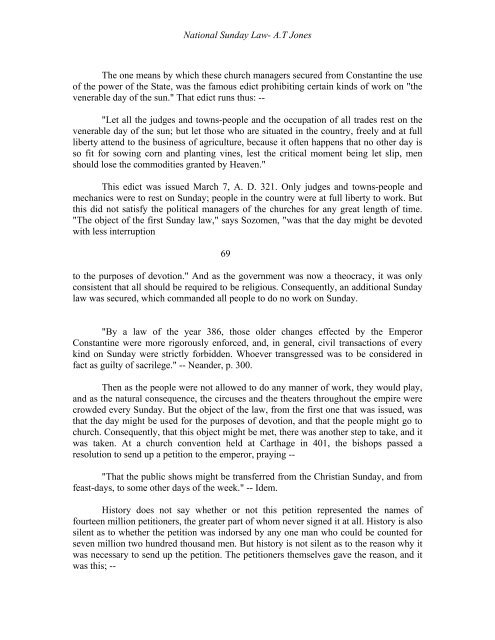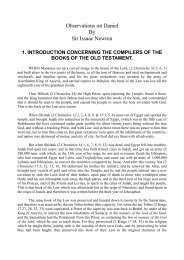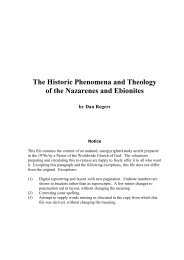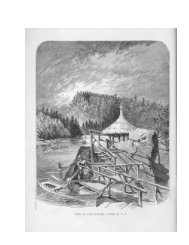THE NATIONAL SUNDAY LAW, ARGUMENT OF ALONZO T ...
THE NATIONAL SUNDAY LAW, ARGUMENT OF ALONZO T ...
THE NATIONAL SUNDAY LAW, ARGUMENT OF ALONZO T ...
You also want an ePaper? Increase the reach of your titles
YUMPU automatically turns print PDFs into web optimized ePapers that Google loves.
National Sunday Law- A.T Jones<br />
The one means by which these church managers secured from Constantine the use<br />
of the power of the State, was the famous edict prohibiting certain kinds of work on "the<br />
venerable day of the sun." That edict runs thus: --<br />
"Let all the judges and towns-people and the occupation of all trades rest on the<br />
venerable day of the sun; but let those who are situated in the country, freely and at full<br />
liberty attend to the business of agriculture, because it often happens that no other day is<br />
so fit for sowing corn and planting vines, lest the critical moment being let slip, men<br />
should lose the commodities granted by Heaven."<br />
This edict was issued March 7, A. D. 321. Only judges and towns-people and<br />
mechanics were to rest on Sunday; people in the country were at full liberty to work. But<br />
this did not satisfy the political managers of the churches for any great length of time.<br />
"The object of the first Sunday law," says Sozomen, "was that the day might be devoted<br />
with less interruption<br />
69<br />
to the purposes of devotion." And as the government was now a theocracy, it was only<br />
consistent that all should be required to be religious. Consequently, an additional Sunday<br />
law was secured, which commanded all people to do no work on Sunday.<br />
"By a law of the year 386, those older changes effected by the Emperor<br />
Constantine were more rigorously enforced, and, in general, civil transactions of every<br />
kind on Sunday were strictly forbidden. Whoever transgressed was to be considered in<br />
fact as guilty of sacrilege." -- Neander, p. 300.<br />
Then as the people were not allowed to do any manner of work, they would play,<br />
and as the natural consequence, the circuses and the theaters throughout the empire were<br />
crowded every Sunday. But the object of the law, from the first one that was issued, was<br />
that the day might be used for the purposes of devotion, and that the people might go to<br />
church. Consequently, that this object might be met, there was another step to take, and it<br />
was taken. At a church convention held at Carthage in 401, the bishops passed a<br />
resolution to send up a petition to the emperor, praying --<br />
"That the public shows might be transferred from the Christian Sunday, and from<br />
feast-days, to some other days of the week." -- Idem.<br />
History does not say whether or not this petition represented the names of<br />
fourteen million petitioners, the greater part of whom never signed it at all. History is also<br />
silent as to whether the petition was indorsed by any one man who could be counted for<br />
seven million two hundred thousand men. But history is not silent as to the reason why it<br />
was necessary to send up the petition. The petitioners themselves gave the reason, and it<br />
was this; --
















